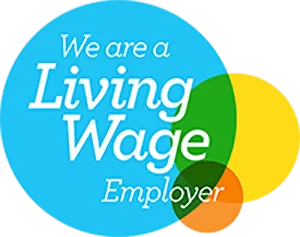
What is Fairtrade
As specialists in Organic Fairtrade clothing, we live and breathe Fairtrade and its philosophy. However, we often get this question posed to us. So we’ve decided to write a simple explanation, in plain English, that says “What is Fairtrade” and “What is Fairtrade not”. We think you might be surprised by the answer.
So, what is Fairtrade?
The Fairtrade Foundation describes Fairtrade in one sentence as “a choice (to) get farmers a better deal”. But what is a “better deal”? How does a choice achieve it? Who makes this choice? What is the choice about? And who benefits from the better deal?
A better deal
A better deal means that farmers, in less developed nations get better prices for the raw materials that they produce, good working conditions, and fairer trading terms.
Fairtrade sets minimum prices for raw materials, such as cotton, cocoa, sugar, bananas and coffee. Those who are buying from Fairtrade farmers must therefore agree to pay these prices. There is then also a social premium that is paid on top of this, that is used for social projects within the local area of the farmer. This could be building schools, installing clean water systems, or other facilities for people in these nations to improve their living standards.
The choice
This choice is made by you, the purchaser, whether you’re a consumer or a business. By choosing to buy Fairtrade products you are choosing to give farmers and workers in less developed nations, a better deal.
What does Fairtrade cover?
Fairtrade covers “raw materials” and products that can be grown naturally. For example, A.M. Custom Clothing specialises in Organic, Fairtrade Cotton Clothing, which, as the name suggests, is made from cotton that is grown organically and by a Fairtrade producer. This is why that synthetic materials like polyester cannot be certified as Fairtrade.
So what is Fairtrade not?
Fairtrade has some basic standards for the environment, but it does not require a product to be organic, or produced in a carbon neutral way. Fairtrade forbids the use of genetically modified organisms, and requires the safe use of agrochemicals. This are basic requirements, which is obviously much better than no standard at all. But by no means should Fairtrade be considered a standard that is designed to protect the environment.
A.M. Custom Clothing’s Fairtrade clothing range is produced using cotton that is both certified as Fairtrade and Organic. As well as being produced in a factory powered by renewable energy and with SA8000 accreditation, protecting the workers in the factory.
If you’re buying a Fairtrade product, don’t assume that it covers the following:
- Organic production.
- Strongly regulated factory standards (this being after the material has left the producer and has gone to be manufactured, by a - separate company, and/or in a different country).
- Renewable energy use in the manufacturing process.
- Requirements regarding the reduction of greenhouse gas emissions.

Conclusions of Fairtrade
At A.M. Custom Clothing we would never say that any single initiative to improve the environmental or social impact of production processes is a “magic pill”, or the ultimate solution. Instead we believe that a more rounded approach is best. Choosing products that are Fairtrade, Organic and with reduced carbon emissions is naturally a better choice than those that are just Fairtrade, or just Organic. Whilst at the same time, choosing a product that is just Fairtrade, or just Organic is better than a product that is neither of these things.
Making a decision between which certifications you want, depends on what your beliefs are, and where your values align with the products. For example, if you own an organic supermarket, your uniforms and workwear should probably be organic too.
Looking for Fairtrade clothing?
If are looking for Fairtrade clothing, click here to see our A.M. Fairtrade products.

